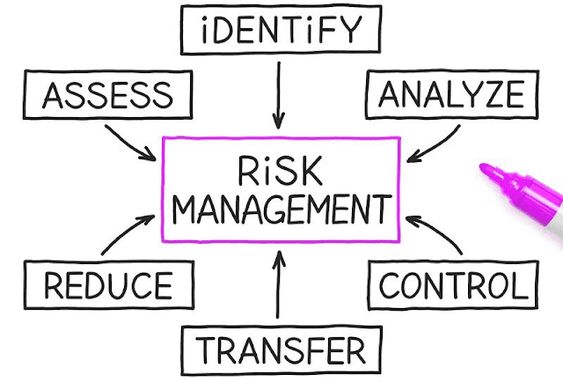What is Operational Risk Management?
Operational Risk Management (ORM) is the process of identifying, assessing, and managing the risks associated with an organization’s operations. It is a critical component of any organization’s overall risk management strategy, as it allows for the identification and mitigation of potential threats to the organization’s operations. ORM is a key component of any effective risk management program, as it helps to ensure that operational risks are identified, assessed, and managed in a timely and effective manner.
What is the ABA Certificate in Operational Risk Management?
The ABA Certificate in Operational Risk Management is a professional certification program designed to help professionals develop their skills and knowledge in the area of operational risk management. The program is administered by the American Bankers Association (ABA) and is designed to provide individuals with the necessary knowledge and skills to effectively identify, assess, and manage operational risks within their organizations.
The ABA Certificate in Operational Risk Management is a comprehensive program that covers a wide range of topics related to ORM, such as risk identification, assessment, and management; compliance and regulatory issues; and risk management strategies. The program is designed to provide individuals with the necessary knowledge and skills to effectively identify, assess, and manage operational risks within their organizations.
Benefits of the ABA Certificate in Operational Risk Management
The ABA Certificate in Operational Risk Management provides individuals with the necessary knowledge and skills to effectively identify, assess, and manage operational risks within their organizations. The program is designed to provide individuals with the necessary knowledge and skills to effectively identify, assess, and manage operational risks within their organizations.
The ABA Certificate in Operational Risk Management provides individuals with the necessary knowledge and skills to effectively identify, assess, and manage operational risks within their organizations. The program also provides individuals with the skills to develop and implement effective risk management strategies, as well as the ability to understand and comply with applicable regulatory requirements.
The ABA Certificate in Operational Risk Management also provides individuals with the necessary knowledge and skills to effectively identify, assess, and manage operational risks within their organizations. Additionally, the program provides individuals with the knowledge and skills to effectively communicate risk management strategies to stakeholders, and the ability to develop and implement effective risk management strategies.
Who Should Pursue the ABA Certificate in Operational Risk Management?
The ABA Certificate in Operational Risk Management is designed for individuals who are interested in developing their knowledge and skills in the area of operational risk management. The program is ideal for individuals who are looking to gain an understanding of the principles of operational risk management, as well as the ability to effectively identify, assess, and manage operational risks within their organizations.
The program is also ideal for individuals who are looking to gain an understanding of the principles of operational risk management, as well as the ability to effectively identify, assess, and manage operational risks within their organizations. Additionally, the program is ideal for individuals who are looking to gain an understanding of the principles of operational risk management, as well as the ability to effectively communicate risk management strategies to stakeholders.
How to Obtain the ABA Certificate in Operational Risk Management
The ABA Certificate in Operational Risk Management can be obtained by completing the program’s online courses. The program consists of four online courses that cover the topics of risk identification, assessment, and management; compliance and regulatory issues; and risk management strategies.
The program also includes a comprehensive final exam that must be completed in order to receive the ABA Certificate in Operational Risk Management. Upon successful completion of the program, individuals will receive the ABA Certificate in Operational Risk Management.
What Are the Benefits of Obtaining the ABA Certificate in Operational Risk Management?
The ABA Certificate in Operational Risk Management provides individuals with the necessary knowledge and skills to effectively identify, assess, and manage operational risks within their organizations. The program also provides individuals with the skills to develop and implement effective risk management strategies, as well as the ability to understand and comply with applicable regulatory requirements.
Additionally, the ABA Certificate in Operational Risk Management provides individuals with the knowledge and skills to effectively communicate risk management strategies to stakeholders, and the ability to develop and implement effective risk management strategies.
You might find these FREE courses useful
- Operational Risk Management: Frameworks &
- Risk governance: Manage the risks
- Maturing Risk Management
- Disaster, Crisis, and Emergency Preparedness
- FinTech Risk Management
- Investment Risk Management
- Market Risk Management: Frameworks & Strategies
- Credit Risk Management: Frameworks and Strategies
Conclusion
The ABA Certificate in Operational Risk Management is a comprehensive professional certification program designed to help professionals develop their skills and knowledge in the area of operational risk management. The program is administered by the American Bankers Association (ABA) and is designed to provide individuals with the necessary knowledge and skills to effectively identify, assess, and manage operational risks within their organizations. The program is ideal for individuals who are interested in developing their knowledge and skills in the area of operational risk management, as well as those who are looking to gain an understanding of the principles of operational risk management, as well as the


